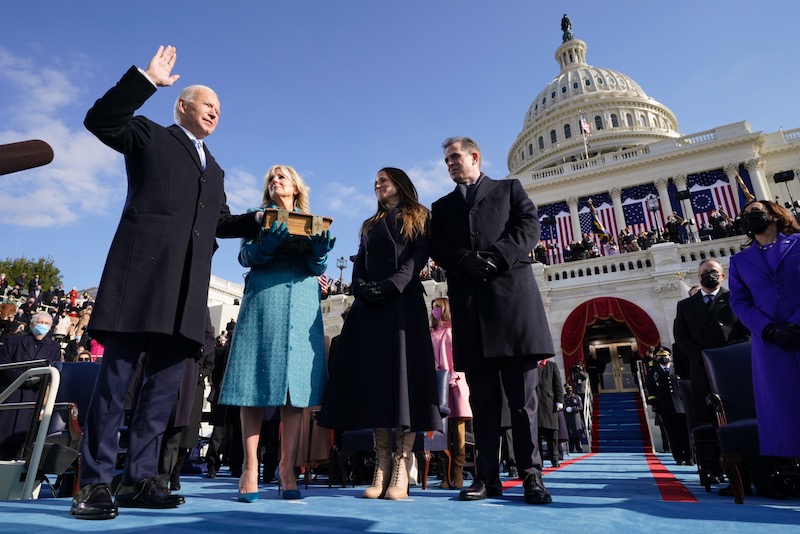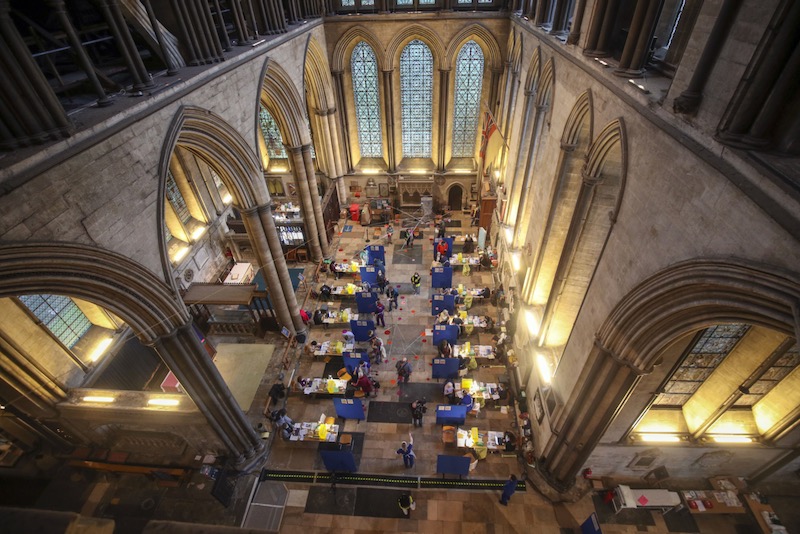Religious leaders and academics have praised the work of faith communities during the pandemic and called on government to give more help.
At a Religion Media Centre briefing, faith leaders and academics gathered to discuss how faith groups can assist in public policy.
Chris Baker, the William Temple Professor of Religion and Public Life at Goldsmiths University, struck a positive note about the relationship between religious groups and councils, reflecting his new report Keeping the Faith.
Professor Baker spoke of 67 per cent of councils reporting an increase in partnerships with faith groups, and 91 per cent saying their experience with faith groups was very or mostly positive.
He said: “The pandemic has clearly created a new-found appreciation and endorsement of faith-based engagement; a recurring motif from local authorities…[was] how impressed they were by the professionalism and flexibility of the faith-based response and the resources that faith groups were able to draw upon.”
The professor went on to address traditional concerns around government working with religious groups – “that they’re socially conservative, that they have poor representation of women and children in their meetings, that they want to use service to their communities as an opportunity to proselytise”.
But he concluded from the “very low figures” of councils encountering these problems in practice that “there is a lot more relaxed approach generally to faith groups bringing those aspects of themselves into the public square. There seems to be much less anxiety around those sorts of things than there would have been 20 years ago or even 10 years ago.”
According to Professor Baker Covid has provided a chance for government and faith groups to “reset” their relationship with his report revealing “clear evidence of a commitment [on behalf of local councils] to deepening relationships, a willingness to share resources and innovations…we’re moving away from the functionality of delivering care and social welfare, to discussing what are the shared values that we need to bring in order to make this partnership more effective”.
Tim Mortimer, Programmes Manager at The Faith & Belief Forum, expanded on the theme, saying that the work that faith groups do has often gone “unrecognised” and that the pandemic represented an “opportunity” for people to realise the role they can play.
Tim cited the example of Barking and Dagenham where “in their Covid response they [the council] put a message out to all community groups…and what they found was that the majority of groups that responded to that call were faith groups”. Tim pointed to the social connectivity of faith groups as a key to their success and noted that many had already been providing help and working with councils was simply a matter of scaling up their activities, with one local gurdwara expanding its food distribution programme to 4,000 a week.
Dr Jagbir Jhutti-Johal, a lecturer in Sikh Studies at Birmingham university and a former Commissioner on Religion and Belief in British Public Life, echoed the importance of faith groups’ contribution to public life and social services, but was critical about what she saw as the inadequacy of the government’s approach to religious bodies in this area.
Dr Jhutti-Johal spoke of the severe economic impact the pandemic has had on gurdwaras and their capacity to provide food charity: “Government does have a responsibility in supporting gurdwaras and faith communities that are providing this service.” She saw the main barrier to effective resource sharing and collaboration as an “organisational clash” between religious groups providing a service “that doesn’t have any strings attached” versus government programmes concerned with monitoring and controlling its resources closely. Religious charity she notes is inherently hard to adequately cost, and is in a sense “uncountable” in its full extent.
Dr Jhutti-Johal went on to take issue with the lack of trust she felt government still has towards faith groups in the resources it does provide to faith groups: “Funding is done through the cohesion strategy, if you are working with other partners, other faith groups, then you are able to access that kind of funding…certain barriers have been put up, there doesn’t seem to be that trust that these faith communities can do what they’ve always been doing.”
Jenny Sinclair, director of Together for the Common Good also had a word of warning about the partnership between government and faith groups: “Accepting government money comes with a cost and mission drift is inevitable…it’s really important that faith groups and faith-based charities hold on to their sense of ethos…and inevitably when we become service providers there is a risk of seeking to justify our existence as a useful handmaid of the state…we’re more than this, we have a sacred civic role, churches have been in relationship with communities for hundreds of years.
“This relationship of service-client, where the churches and the volunteers are finding themselves in relationship with people more in a service provision relationship rather than as neighbours. I think we need to think about a shift from that rather paternalistic way of doing good to people and rather towards a participatory role where faith groups are good civic neighbours but where they retain that autonomy.”



 Loading ...
Loading ...